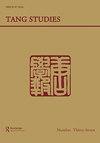MEETING THROUGH POETRY: DU FU’S 杜甫 (712–770) “WRITTEN IN ACCORD WITH PREFECT YUAN’S ‘BALLAD OF CHONGLING’”
IF 0.5
0 ASIAN STUDIES
引用次数: 2
Abstract
Abstract In 764 Yuan Jie (719–772) composed two poems, “Ballad of Chongling” and “After the Raiders Have Withdrawn: To Clerks and Officials,” which portray his attempts to alleviate the sufferings of the people in his district. They inspired Du Fu (712–770) to respond with his own, “Written in Accord with Prefect Yuan’s ‘Ballad of Chongling.’” Du Fu’s poem is a remarkable work with its deep and detailed appreciation of Yuan Jie’s poetry and person. In addition, the example of Yuan Jie caused Du Fu to reflect on his own actions and career so that “Written in Accord” becomes as much an apology for his life as it is a memorial to Yuan Jie. In his poem Du Fu acknowledges his own failures, but also reviews the nature of poetry and finally affirms his place as a poet. This study closely examines one poet’s response to the work of another with a focus on how Du Fu’s concerns are reflected in the structure of his work, be it the framing device with which Du Fu directly contrasts himself to Yuan Jie or the use of ambiguity which enables Du Fu to convey the complexities of what it means to be a poet.以诗相会:杜甫的《儒学》(712-770)“根据元太守的《崇陵谣》而写”
公元764年,袁杰(719-772)写了两首诗《崇陵歌谣》和《兵退后致文官》,描绘了他为减轻辖区人民的苦难所做的努力。他们启发杜甫(712-770)以他自己的回应,“按照袁长官的'崇陵歌谣'写。”杜甫的这首诗对袁洁的诗和人都有深刻细致的欣赏,是一部了不起的作品。此外,袁洁的榜样也促使杜甫反思自己的行为和事业,《协议》既是对自己一生的道歉,也是对袁洁的纪念。杜甫在诗中承认了自己的失败,但也回顾了诗歌的本质,最终肯定了他作为诗人的地位。本研究仔细考察了一位诗人对另一位诗人作品的回应,重点关注杜甫的关注点如何反映在他的作品结构中,无论是杜甫直接与袁洁形成对比的框架装置,还是使杜甫能够传达诗人含义复杂性的模糊性的使用。
本文章由计算机程序翻译,如有差异,请以英文原文为准。
求助全文
约1分钟内获得全文
求助全文

 求助内容:
求助内容: 应助结果提醒方式:
应助结果提醒方式:


